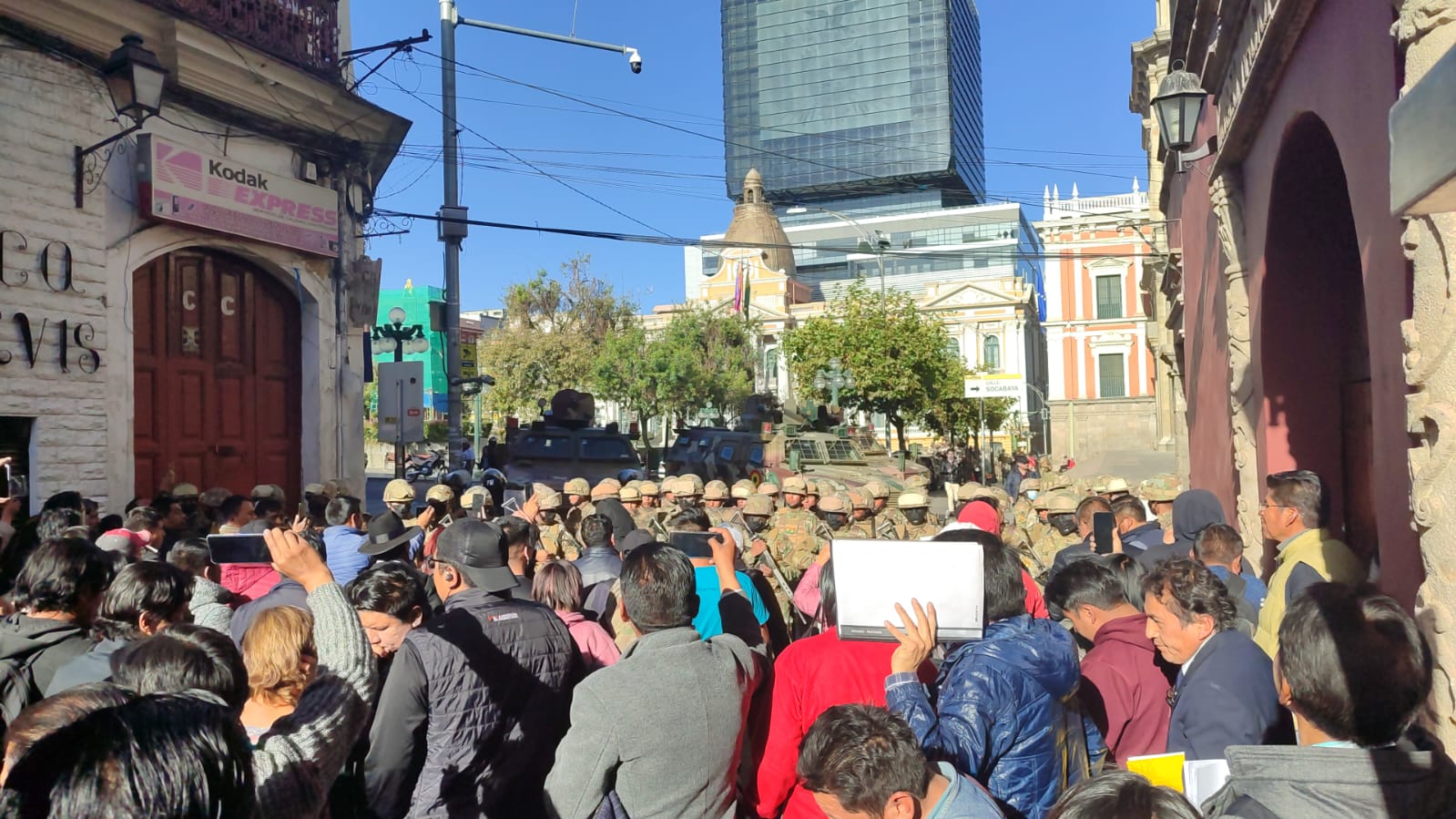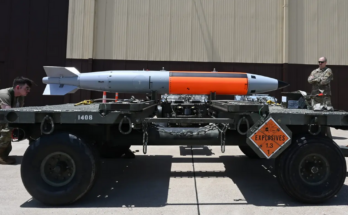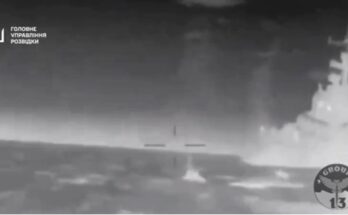
A recent failed coup attempt in Bolivia has sparked outrage, concern and a conflict of narratives, as some observers doubt the origin of the uprising. Swirling allegations in a country already riddled with economic and social problems have underscored both longstanding and recent divisions in the Andean nation, and with a critical 2025 election looming on the horizon, the attempted takeover may have significant political ramifications that could alter the fragile power balance of the country.
On Wednesday, June 26, Bolivia was rocked as soldiers under the leadership of General Juan Jose Zúñiga stormed the presidential palace, seeking to overthrow or coerce President Luis Arce. As soldiers locked down the surrounding plaza and rammed an armored vehicle through the palace doors, Arce and his allies in the ruling Movement for Socialism (MAS) party called for mobilization to defend democracy and the President quickly appointed new military leadership to quell the situation. After several tense hours, embodied in the eye-to-eye standoff between President Arce and General Zúñiga in the halls of the presidential palace, the would-be coupist forces demobilized and Zúñiga was arrested with Arce declaring victory for Bolivian democracy. With fewer than 12 injured, the not-even-single-day coup was over as quickly as it began, leaving a litany of questions about its impetus. In the wake of June 26, the story of the coup has been confusing, and largely relayed by unreliable narrators.
Serving as head of the Bolivian Army since November 2022, Zúñiga was removed from office a day before the coup following statements critical of ex-president and MAS leader Evo Morales. President from 2006 to 2019, Morales is a titan of Bolivian politics known for his left-wing policies, widely supported by many working class and rural Bolivians. He sparked concern in 2019 when he announced his intention to run for an unconstitutional third presidential term. His victory in the October election sparked major protests and allegations of voter fraud and corruption. During the subsequent protests, supporters and opponents of Morales clashed, leading to his resignation and exile from the country under pressure from conservative politicians, and members of the military and police. Morales and his supporters have labeled the unofficial transfer of power to the opposition as a coup. In the following elections, Morales threw his weight behind MAS’ candidate, now-president Luis Arce, who won office, allowing Morales to return.
Following his return in the wake of Arce’s victory, Morales made waves in the landlocked country by declaring his candidacy for president in 2025, opposing his former ally Arce for the MAS nomination, turning the men into rivals. The controversial announcement led to Zúñiga’s comments on June 24, in which he called the ex-president a traitor, and threatened to have him arrested if he was re-elected.
During his attempted coup, Zúñiga raised eyebrows stating it was his intention to “restore democracy” by opposing Morales. Once arrested, Zúñiga made unevidenced claims that it was in fact President Arce who had masterminded the operation, ordering the general to attempt a coup to boost his own popularity. To complicate matters further, these sentiments were echoed by former President Morales, who alleged the same only days after calling on supporters to oppose Zúñiga.
While Bolivia is certainly a hotbed of coup activity, having suffered around 40 since 1946, last week’s attempt has drawn much scrutiny from inside and outside observers. While Zúñiga could have launched a hastily prepared coup, overestimated his own support, and backed down, the refusal or inability to directly arrest Arce despite being mere feet away from him sparked questions about how sincerely attempted the coup was attempted. Additionally, the decision to launch a coup at midday, when government supporters were still awake and in the streets, appears a clear oversight. Compared to 2019, when segments of the military, police and conservative opposition threw their lot in quickly with Morales’ opponents, the June coup manifested virtually no outside support. While no evidence has been made public, the curious nature of Zúñiga’s coup gives credible room for doubt.
Morales’ claims that Arce orchestrated a self-coup throws more doubt into the narrative. Morales is highly motivated by his desire to return to office, and discrediting his chief rival Arce would advance that interest further. Alternatively, by surviving an apparent military coup, Arce gains much-needed political support with a cutthroat election ahead. Both men’s stake in the upcoming election makes them questionable chroniclers of the current crisis.
Dissenting opinions both within MAS and Bolivia at large have made Zúñiga’s coup a focal point for national tensions. With Arce and Morales disputing the nature of the situation, MAS supporters may be split down the middle, weakening their prospects of holding power in 2025. Likewise, right-wing segments of society will seek to exploit the division in the party to pursue their interests electorally or otherwise. Fears of a Morales comeback could marshal support for another coup in the armed forces and among the opposition. A combination of compounding economic woes and vicious political infighting has set the stage for turmoil in the run-up to the 2025 elections, and Zúñiga’s coup seems unlikely to be the only violence the tumultuous Andean nation experiences over the next year.
Tom Freebairn is a weapons analyst with Military Periscope covering naval affairs and maritime systems. He pursued an undergraduate degree in International Relations and Modern History, followed by a master's in Middle East, Caucasus, and Central Asia Security Studies from the University of St. Andrews. His master's thesis focused on the relationship between oil and separatist politics in Northern Iraq. Tom's interests include the politics of energy, ethnic separatism, the evolution of naval warfare, and classical history.




